Some Beautiful Polarization? (I.D. IX)
 |
| William A. Dembski, author of Intelligent Design |
Dembski pretty much brings up the point himself in his chapter on "Naturalism and Its Cure":
... [T]he question remains, what evidence has God given of interacting with the world. Because God is intimately involved with the world moment by moment, there is no question that God interacts with the world. Controversy arises, however, once we ask whether God's interaction with the world is empirically detectable. It is one thing as a matter of faith to hold that God exists, interacts with and sovereignly rules the world. Alternatively, one may argue on philosophical grounds that the world and its laws are not self-explanatory and therefore point to a trnascendent source. (p. 104)
So far I am with Dembski ... I think. I accept the theological proposition "that God exists, interacts with and sovereignly rules the world," though we might differ over what "sovereignly rules" means. And I believe the philosophical proposition that God is the "transcendent source" of "the world and its laws," though I'm not sure I personally could manage to drive home the point "on philosophical grounds" alone.
But here comes where Dembski and I begin to part company:
... But it is another thing entirely to assert that empirical evidence supports God's interaction with the world, rendering God's interaction empirically detectable. Theology and philosophy [the two teaching magisteria referred to earlier] are perfectly legitimate ways for understanding God's interaction with the world. Nonetheless, neither theology nor philosophy can answer the evidential question whether God's interaction with the world is empirically detectable. (p. 104)
That much is true as far as it goes ... but it does not go far enough. The "evidental question" is one that theology and philosophy can't answer, I agree. But now comes the kicker:
To answer this question we must look to science. The science we look to, however, must be unencumbered by naturalistic philosophy. If we prescribe in advance that science must be limited to strictly natural causes, then science will necessarily be incapable of investigating God's interaction with the world. But if we permit science to investigate intelligent causes (as many special sciences already do, e.g., forensic science and artifical intelligence) then God's interaction with the world, insofar as it manifests the characteristic features of intelligent causation, become a legitimate domain for scientific investigation. (p. 105)
To that I say, "Whoa! That's not even a well-formed argument." For one thing, it simply assumes that it's not only legitimate but even possible to redefine science such that science can investigate "intelligent causes" emanating from a transcendent source. Note that forensic science and artificial intelligence investigate intelligent causation within the bounds of the natural universe. That this is legitimate says absolutely nothing about the possibility of transposing such investiagations to the domain of God-world interaction.
For Dembski's argument simply assumes that empirically detectable "intelligent causes" may possibly exist across that particular interface: the one of God-world interaction. That's a metaphysical, ontological — or at least epistemological — assumption that might not be justified. It may be like stating that it's legitimate for science to wonder if aardvarks can exist in a vacuum, when by its very definition a vacuum can contain nothing, aardvarks or otherwise. Maybe the question of whether empirical scientific evidence of intelligent, transcendent causation can be found across the God-world interface is wholly null, such that either a "yes" or a "no" answer would be equally improper.
Or, more simply put, what part of the word "transcendent" does Dembski not understand?
Another problem with Dembski's argumentation is that is simply assumes that God exists, as in, "[T]here is no question that God interacts with the world." That logical faux pas of simply assuming the truth of what the arguer intends later to demonstrate extends over from material that precedes this argument, in which Dembski assails scientific naturalism as "The Root of Idolatry" (section 4.2, pp. 99-103) and then boldly asks (p. 103, in section 4.2, "Naturalism Within Western Culture"), "How then do we defeat naturalism ... [of which the] most virulent form is known as scientific naturalism?"
Again, Whoa! Talk about prejudicial misconduct on the part of the prosecutor. This portion of Dembski's presentation doesn't serve to make a case. It is, rather, a naked call for a lynching.
If anyone wants one good reason why Intelligent Design doesn't belong in the nation's high school classrooms, this is it. It's leading proponent cannot resist making incendiary remarks about scientific naturalists, lumping them all in with out-and-out atheists and then simply assuming that atheism is bad.
I myself am a scientific naturalist, I suppose, because I believe science has no business trying to turn God's discernibility behind nature into God's demonstrability in nature. But I'm no idolater, and I'm no atheist. Rather, I fall in that excluded middle which Dembski's specious mode of argument fails to recognize. I am the victim of Dembski's false dichotomy between supposed atheistic idolaters and those who, like Dembski himself, would seek to demonstrate God's "intelligent causation" in the natural world.
I'm not going to let Dembski and others get away with that. What he makes for is aptly described in a phrase I ran across in another book I happen to be reading currently, Francine du Plessix Gray's Divine Disobedience: Profiles in Catholic Radicalism.
 |
| Daniel Berrigan |
The lines were drawn: the pleading Pope versus the timid, property-loving American bishops; the lonely young curates rqadicalized by ghetto work versus their cautions, Bingo-mad pastors; the Catholic intellectuals versus the warmongering law-and-order Catholic masses; Commonweal versus the Brooklyn Tablet; the guerillas versus the gorillas. It was getting to be, as Daniel Berrigan said, "some beautiful polarization." (p. 95)
How odd, that a peace activist would applaud polarization, the root source of hostility, I thought as I read this. And then I thought, how appropriate a description for the (obviously intended) effects of Dembski's line of argumentation:
- to drive a spurious wedge between religion and science via claims that the latter, as now constituted, represents idolatry
- then to claim to build a bridge reuniting the two, basing it on "solid ground" that may not even exist in the realm of metaphysical or epsitemological possibility
"Some beautiful polarization" that is!
I may be getting ahead of myself in my criticism of Intelligent Design, the book, but from hints its author has dropped to this point I have to believe he will eventually be applying some sort of logical test to evolutionary history and concluding from this test that empirical evidence of "intelligent causation" exists. But it sounds like his test will be one that "renders probable" the correctness of his theory (n. 8, pp. 284-285) but won't confirm the theory beyond all doubt.
Rather, Demsbki has already suggested that he will be using an Inference to the Best Explanation (IBE) argument which has "no way of precluding 'divine intervention' as the best explanation for a given phenomenon" (n. 5, p. 283). Nor, I assume, could it preclude "intelligent causation."
IBE is a model of inference that, as I say, may not apply across the God-world interface for epistemological and/or ontological reasons. Just because it makes sense within the confines of the world doesn't assure us that it can leap the gap to transcendence.
So I would suggest that maybe, just maybe, Dembski's empirical test — when he finally reveals to us readers what it is — will be one that is capable of giving false positives! It may be like a loose point in an electronic circuit which can read at spurious voltages. Unless Dembski gives us a non-circular argument that convinces us that detectable causality can "leap" the God-world ontological or epistemological "transcendence gap," I would suggest we take his "empirical" test with a grain of salt.






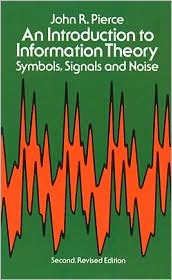

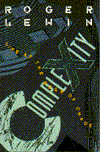

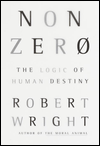

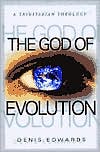

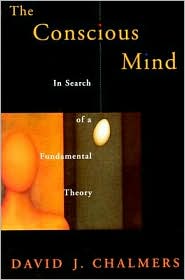
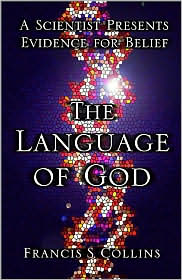


0 Comments:
Post a Comment
<< Home